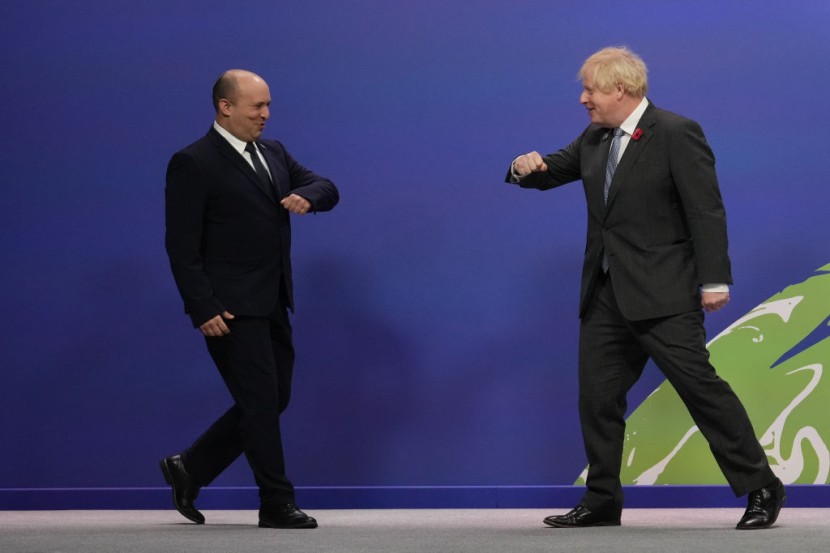
As they signed a "historic" 10-year plan for increasing ties, the UK and Israel's foreign ministers pledged that they would fight "night and day" to prevent Iran from obtaining a nuclear weapon.
Liz Truss, the Foreign Secretary, and Yair Lapid, Israel's foreign affairs minister, preview their new "memorandum of understanding" in a joint article for The Daily Telegraph. The deal, which is set to be signed on Monday, would allow the UK and Israel to collaborate more closely on cybersecurity, technological development, defence, commerce, and research.
Israel to become UK's trusted ally
According to a Foreign Office source, Israel will become one of the UK's most trusted allies in countering cyber threats. Early next year, talks on a trade agreement are expected to begin. One of the most striking features of their joint statement is a reaffirmed resolve to prevent Tehran from obtaining nuclear weapons, which is a topic of discussion that will resume this week.
As discussions on the Joint Comprehensive Plan of Action (JCPOA) nuclear accord resume in Vienna today, UK negotiators will join those of other signatories. The initial deal, reached in 2015, saw Iran promise to halt its nuclear program in exchange for lifting economic sanctions imposed by the other countries.
Israel is concerned that in fresh nuclear talks with global powers, Iran would receive a windfall in sanctions relief but will not substantially pull back initiatives with bomb-making capability, Israeli Prime Minister Naftali Bennett said on Sunday.
The initial 2015 accord was rejected by Israel, which is not a participant in the discussions because it was too restricted in scope and length. Israeli authorities have frequently threatened military action against Iran if diplomacy fails to prevent the country from acquiring nuclear weapons. The Islamic Republic claims to have benign nuclear goals, as per Reuters via Yahoo.
Read Also : China To Release Oil Reserves as Countries Join US in Trying To Cool High Prices, Tame Inflation
Iran accelerates nuclear weapons
Iran's uranium enrichment efforts have accelerated in an apparent move to acquire leverage against the West, so few expect a breakthrough in the negotiations. Between April and June, six rounds of indirect negotiations were undertaken. The next round begins following a pause created by the election of Ebrahim Raisi, a conservative cleric, as Iran's new president.
On Monday, talks in Austria to resuscitate a pact to prevent Iran from gaining a nuclear weapon will begin. But, as Jonathan Marcus points out, the clashing goals of the countries involved make success unlikely. Since the Trump administration's withdrawal from the Iran nuclear deal in May 2018, the agreement, known as the JCPOA, has been referred to as being on life support.
This week might help determine whether it is officially pronounced dead or whether anything can be salvaged to avoid a new Middle East catastrophe. Together with Russia, China, and the so-called European 3 - the United Kingdom, France, and Germany - Iran will attend the formal summit in Vienna.
The initial agreement was reached because there were legitimate concerns in the West that Iran's ultimate goal was to become a so-called "threshold" state with all the technological know-how and resources to build nuclear weapons at any moment.
Per BBC, this was deemed unacceptable by Israel and the United States. And the JCPOA was far from ideal. Many saw it as the best alternative for buying time while working toward a more friendly relationship with Tehran.
Related Article: Israel Blames Iran for Alleged Tanker Attack in Arabian Sea That Killed Briton, Romanian








